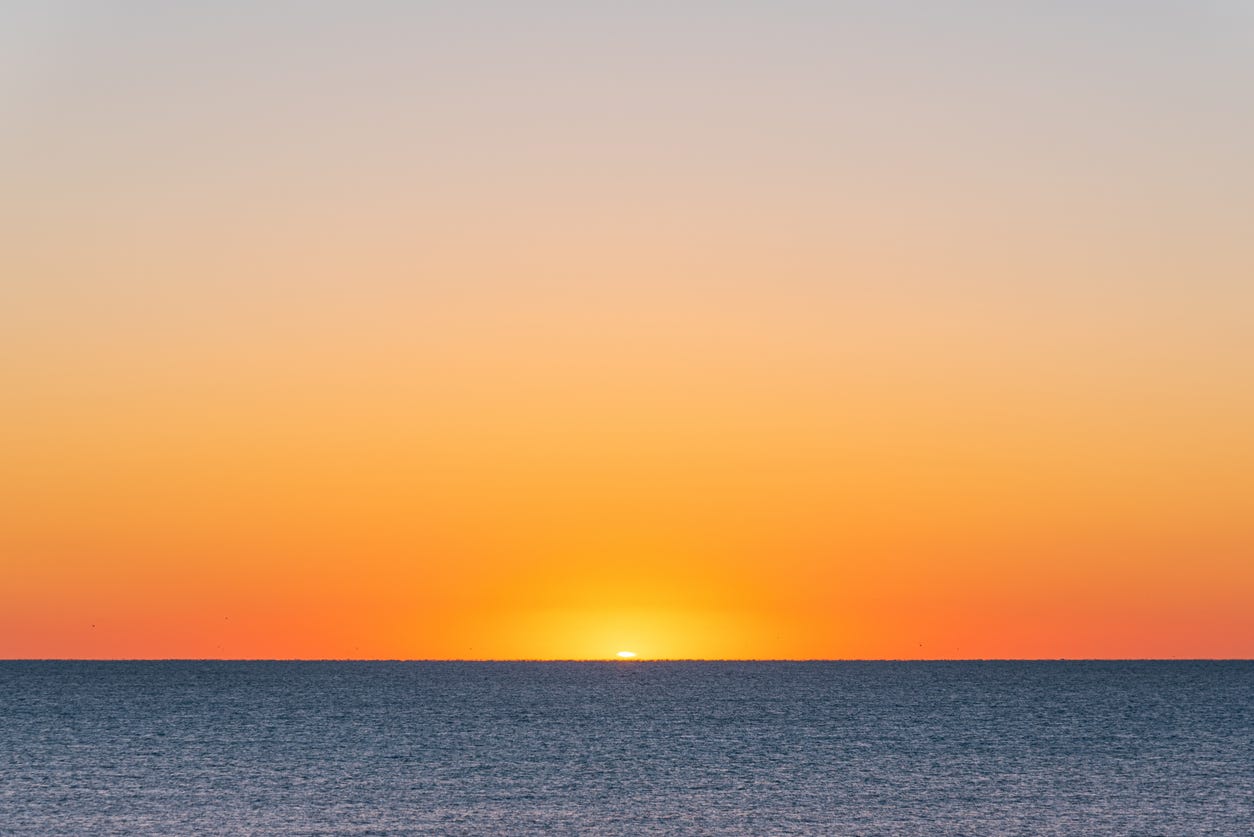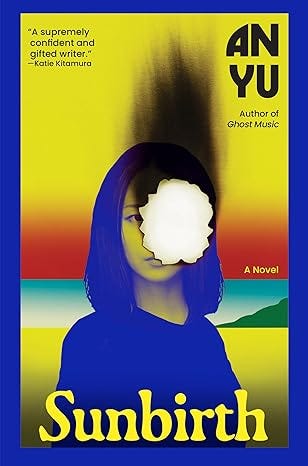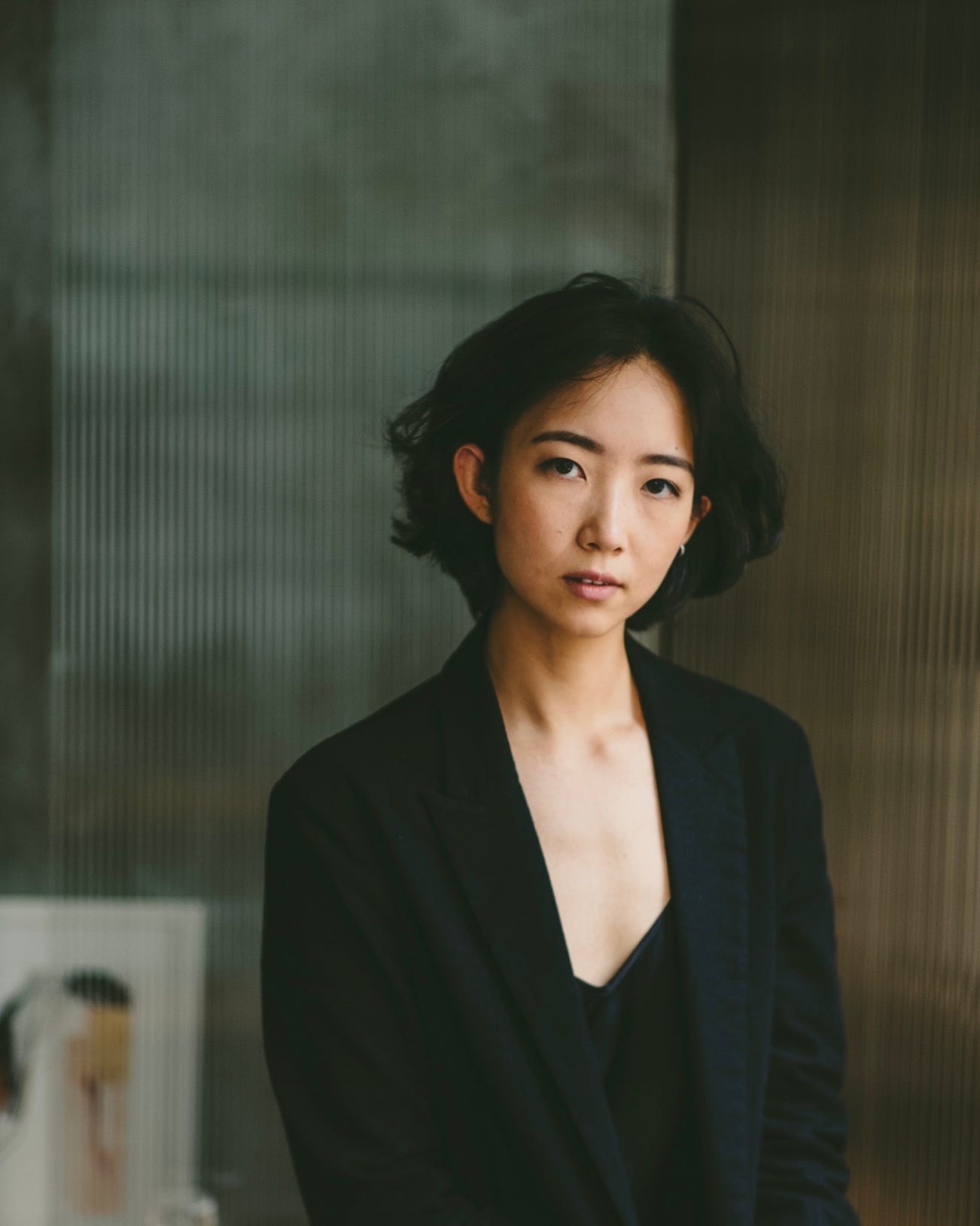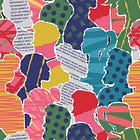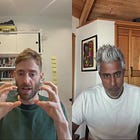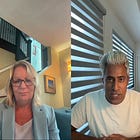And now for something surreal
We're living in dystopian times, which makes the Ink Book Club's August pick, "Sunbirth," by An Yu, just right for this moment
We won’t have a live chat today in order to give book club members a chance to get hold of our latest selection, Sunbirth, by An Yu. Our first discussion around the book will take place next Wednesday, August 6th at 12:30 pm Eastern. If you haven’t read it by then, no worries! We’ll hold our live conversation with the author on Wednesday, August 27th. In the interim, tune in next Wednesday on desktop at The Ink or join us from a phone or tablet with the Substack app. The Book Club is open to all supporting subscribers of The Ink.
When Anand and I launched the Ink Book Club a few months ago, it was with the intention of spotlighting books that, directly or indirectly, engage with themes related to democracy. There would be a mix of non-fiction, fiction, and poetry, and, especially in the realm of fiction, we wanted to elevate and support emerging literary voices. One such voice is the author of this month’s pick, An Yu.
We’re living in “you can’t make this stuff up” times. While wars rage, Gazans starve, unchecked assault rifles make their way into Manhattan skyscrapers, and climate change produces epic floods and record-breaking heat (this headline just in: “E.P.A. Plans to Revoke the Legal Basis for Tackling Climate Change”— you really can’t make this stuff up!), our President is dodging questions about the Epstein files and threatening to prosecute Beyonce. What is happening??? However, in An Yu’s fictional world, people are becoming mini-suns. (Again, can’t make this up, except she did.)
It used to be that speculative or dystopian fiction occupied a category all its own. Novels that, for example, imagined post-apocalyptic worlds in which humanity was trying to claw its way back after near-total devastation could be read without a sense of dread because, well, that could never happen! But here we are, on the precipice.
Hong Kong-based writer An Yu’s Sunbirth can be classified as cli-fi, or climate fiction. In it, the residents of Five Poems Lake, a small village in an unidentified time period and country, are witnessing the sun permanently disappear — sliver by sliver. As the temperature falls and the lake freezes over, food and other resources grow scarce. Soon their town will be uninhabitable. If they remain, they will die. But Five Poems Lake is surrounded by an uncrossable desert, and those who have attempted to leave have never been heard from again. No one knows what lies beyond their town or if, somewhere else, the sun remains whole.
Against this backdrop, two sisters struggle to survive and differ on how to respond to the encroaching apocalypse. Their father, a police officer, has died mysteriously; they desperately try to solve the puzzle of his death. To make things eerier, “Beacons” begin to appear: ordinary folks whose heads have transformed into miniature suns, sparking widespread panic. Are these Beacons potential saviors, or further evidence of looming catastrophe?
For her strangely melancholic style and how she merges realism and surrealism, An Yu has been compared to Japanese writer Haruki Murakami, author of such acclaimed novels as The Wind-Up Bird Chronicle and Kafka on the Shore. I find her ghostly — even perplexing — style reminiscent of South Korean writer Han Kang, who won the Nobel Prize for Literature in 2024. Kang, too, explores themes of loneliness, alienation, and love amid dystopia, never making it easy for the reader to say, yes, I get it.
In a review of An Yu’s previous novel, Ghost Music, The Guardian quipped that Yu “writes as though she’s constantly changing her mind.” Exactly! In The New York Times, Alexandra Kleeman observed that “certain novels [like Yu’s] give the impression of being animated by a force that has little to do with their ordered combination of words. Instead, these narratives seem to orbit their own expression: They exist beyond language.”
Join us on our journey into the strange and haunting world of this stunning writer.
More from The Ink Book Club:




